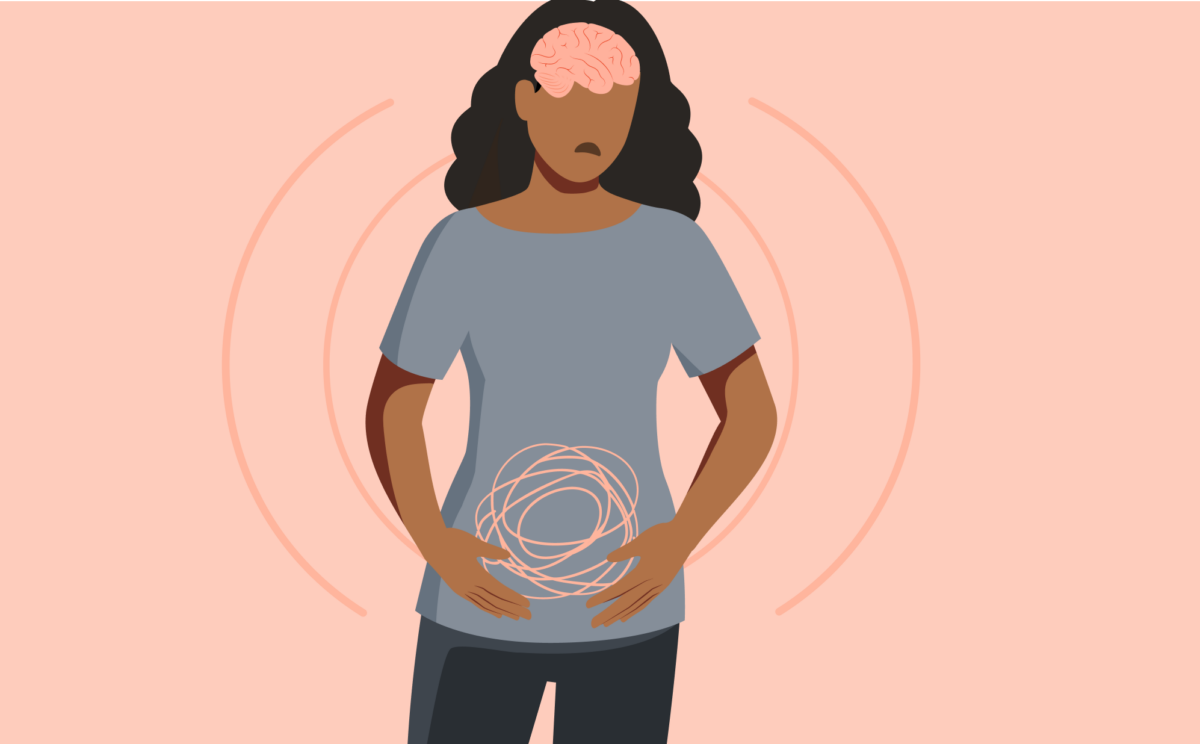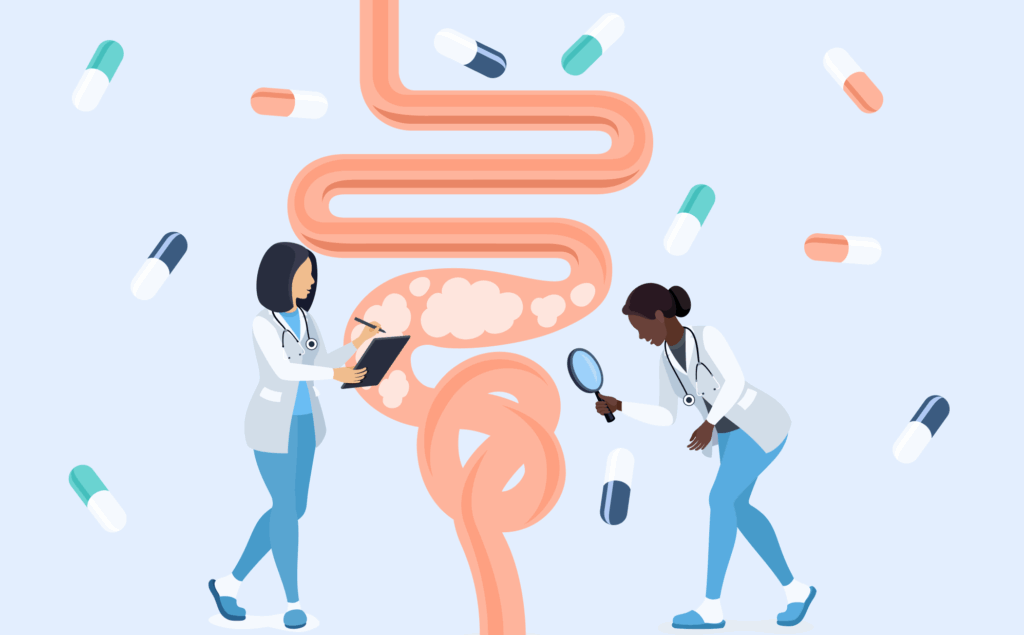Poor sleep and irritable bowel syndrome (IBS) often go hand-in-hand. In fact, people with sleep disturbances are about one and a half times more likely to have some degree of IBS than people without sleep troubles.
So what’s the connection between IBS and sleep? While we don’t yet know the exact relationship, we do know that it’s a cyclical issue.
The role of behavioral health
Anxiety, depression, and stress are known triggers for both IBS and for poor sleep. Often, these triggers cause IBS symptoms–such as diarrhea, abdominal pain, or cramping–which lead to frequent waking during the night and can ruin a good night’s sleep.
Poor sleep, in turn, can increase visceral hypersensitivity and cause IBS symptoms to worsen the next day, and so the cycle begins.
Actionable tip: Try a 10-minute wind-down ritual
Create a short, calming bedtime routine that lets your brain and gut know it’s time to relax. Here’s what that might look like:
- Turn off screens 30-60 minutes before bedtime. Blue light can keep your brain on alert. Instead swap scrolling for something soothing, like a warm bath or short guided meditation.
- Apply heat to your tummy. If your gut is acting up, this warmth can help ease tense muscles and make it easier to drift off to sleep.
- Write in a journal. Shifting your focus from daily worries to gratitude can help calm your mind (and gut).

What is visceral hypersensitivity?
Ever felt like your gut goes haywire when you eat certain foods or go through stressful situations? This heightened sensitivity is called visceral hypersensitivity. It plays a major role in IBS. Visceral hypersensivity means your gut nerves are extra sensitive to sensations that most people don't think twice about, like typical digestion and small amounts of bloating in the GI tract. For someone with a hypersensitive gut, these sensations can feel uncomfortable or even downright painful and cause symptoms like abdominal pain, cramping, and painful bloating.
Diet choices, IBS symptoms, and sleep
Dietary factors can also play a role in the IBS-sleep cycle. For example, caffeine can exacerbate some IBS symptoms and, on its own, can also interfere with sleep.
Similarly, eating fatty foods late at night can increase IBS symptoms, causing poor sleep. And when we’re tired, we tend to make poor food choices, reaching for processed, sugary or carbohydrate-dense foods that provide a quick hit of energy but may worsen IBS symptoms. Again, the vicious cycle between IBS and poor sleep continues.
Actionable tip: Finish your last meal 2-3 hours before bedtime
This gives your body plenty of time to start digesting before you lie down, which can ease nighttime GI symptoms like bloating or urgency.
If you’re feeling hungry close to bedtime, opt for a light, gut-friendly snack food, like a banana or warm bowl of oatmeal.
Other sleep-disrupting conditions and IBS
IBS often goes hand-in-hand with other conditions like chronic pain and anxiety—both of which can make it hard to get a good night’s rest.
More than half of people with IBS have chronic pain that affects their neck or back, making it hard to sleep comfortably. Anxiety, common in people with IBS, can raise cortisol levels (that’s the stress hormone) and keep your body on alert when it’s actually time to catch some Zzz’s.
Actionable tip: Keep a symptom journal
Patterns can offer powerful clues. You might notice sleep is harder when your chronic pain flares up or when stress is piling up.
If quality sleep feels out of reach lately, try writing down:
- What you’re eating
- Symptoms you’re noticing
- Pain levels (and when they happen)
- How you’re feeling mood-wise
- Times when you get up and go to sleep
This kind of insight can help you (and your GI provider) create a personalized plan for GI symptom relief.
Breaking the cycle
The key to breaking the cycle between IBS and poor sleep is to focus on a whole-person approach–one that reduces stress and anxiety, addresses any underlying depression, and creates dietary and lifestyle changes to support both IBS improvements and good sleep hygiene.
With Oshi Health, you get access to a full team of GI providers–including a gut-brain specialist and registered dietitian–who work with you to address these underlying issues and create sustainable changes to help you feel and sleep better.
Good sleep hygiene is important for managing IBS symptoms, but the key is to know yourself and your body. If you’re ready to get support and start feeling better, sign up for Oshi Health and get seen by a dedicated care team within days.
Oshi is your partner in digestive health
Feel like your digestive concerns are running your life? You’re not alone—and we’re here to help you find lasting relief.
Oshi Health GI providers, gut-brain specialists, and registered dietitians work together to address your symptoms and find solutions that actually work for you.
Whether you’re dealing with chronic digestive issues or unpredictable symptom flare-ups, our GI specialists deliver:
✔ Personalized care plans tailored to your lifestyle
✔ Science-backed strategies to calm your gut
✔ Compassionate, whole-person care
✔ And so much more!
Ready to take control of your gut health?




